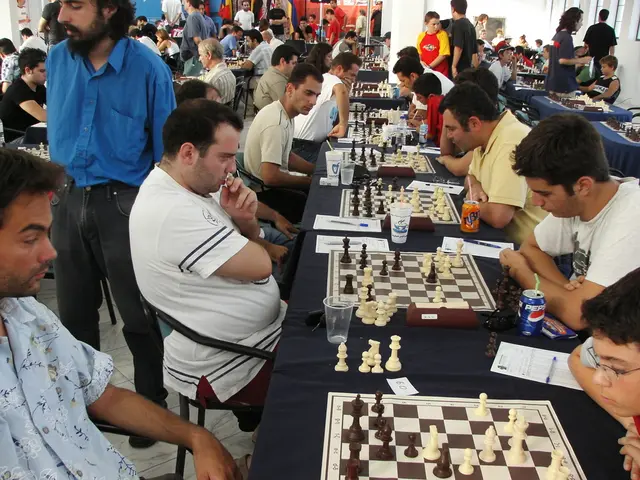Understanding Folding Strategies in Poker: Exploring the Rationale Behind When and Why to Fold Cards
In the world of poker, folding is often seen as a sign of defeat or fear. However, experienced players know that it's a crucial strategic move to protect their chips and play the long game.
Folding, when done right, is about thinking ahead and controlling emotions. It's not just about keeping chips safe; it's about employing long-term strategy and controlling emotions to maximize profits.
When faced with a tough decision, assessing the strength of your hand relative to the situation is key. If your hand is weak and not worth the risk, it's better to fold, even if you have a high pair. This is especially true when your opponent shows signs of having a strong hand, such as aggressive betting.
Pot odds play a significant role in deciding when to fold. If the hand has no chance of winning or a low chance, and the pot odds are not enough to call, it's best to hold. Practicing calculating pot odds and probability is essential for professional poker players.
Experienced players see folding as a step back to prepare for the long game. They understand that conserving chips is just as important as winning hands. This is particularly true in No Limit Hold’em, where significant swings occur due to all-in situations.
Emotional management is another critical aspect of poker. Maintaining mental discipline, staying calm, and avoiding "tilt" (emotional frustration leading to reckless play) is crucial. Emotional stability is especially important in high-pressure situations, such as when your opponent has played aggressively, causing suspicion of a strong hand.
Strategies like the push-fold strategy—used when you have around 10 big blinds or less—help manage risk by limiting your options to either moving all-in or folding preflop, thus effectively preserving your stack and avoiding losing more chips unnecessarily.
Analyzing past hands where you felt uncertain, wanted to fold, and folded can help identify flaws in your mentality and assess opponents. If you find yourself in a similar situation, deciding to fold at this point is a smart choice to reduce risk.
Folding doesn't always mean losing. In fact, knowing when to fold is an art in poker. It's about understanding when to take a step back to take many steps forward. Observing and understanding an opponent's psychology can help read them more effectively over time.
In conclusion, effective folding hinges on hand strength, position, and pot odds, while emotional management demands self-discipline, patience, and a focus on long-term outcomes. Using strategies like push-fold simplifies decision-making during short stack stages, and staying aware of your mental state prevents costly emotional errors. Remember, folding is not a sign of fear or weakness, but a strategic move to protect chips and play the long game.
In the context of casino-games like poker, folding is strategically important for experienced players to protect their chips, employ long-term strategy, and maximize profits. When faced with a tough decision, considering pot odds, the strength of one's hand, and the situation at the table is essential. In high-pressure situations, emotional management becomes crucial to maintain mental discipline, stay calm, and avoid tilting. Strategies like the push-fold strategy are valuable for managing risk during short stack stages in games like No Limit Hold’em. Observing and understanding an opponent's psychology can help make better choices about when to fold, making it an art in poker. Folding does not equate to losing; it's a smart move to reduce risk and position oneself for future success.




